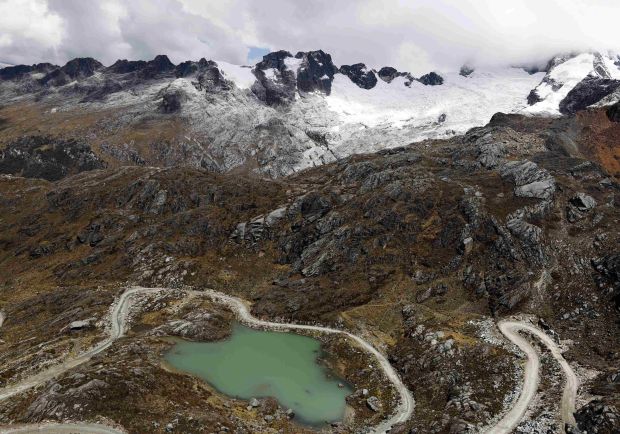WARSAW, Poland (CNS) — Representatives of Catholic organizations voiced disappointment at the conclusion of a United Nations summit on climate change and urged church leaders to do more to mobilize the public to act on behalf of the environment.
Their disappointment stems from slowed progress toward an aggressive tack to reduce carbon emissions worldwide during the Conference of Parties of the U.N Framework Convention on Climate Change which ended Nov. 23 in Warsaw.
“Given the urgency of the problems, we always have high expectations, but this summit’s outcome is far from what’s needed,” said Emilie Johann, policy and advocacy officer with CIDSE, a Brussels-based alliance of 17 Catholic aid groups.
“Real change will clearly also have to come from people on the ground. So we need churches worldwide to help explain what help climate change involves and empower people to act,” she said.
[hotblock]
The summit, attended by delegates from 195 nations, failed to foster a “global consensus” or resolve a “disconnection” between U.N.-backed initiatives and national policies, Johann explained to Catholic News Service.
Meanwhile, Chris Bain, director of Britain’s Catholic Fund for Overseas Development, said he was disappointed the summit failed to achieve steps to limit rising temperatures to an average of two degrees Celsius by the end of the century.
“There was no sense of any real commitment in this area by either developed or developing countries,” he said.
The Warsaw conference was the 19th intergovernmental gathering to review progress since the 1997 Kyoto Protocol on reducing greenhouse gases. The accord was extended in 2012 with a new commitment to cut carbon dioxide output by 18 percent by 2020.
A UNFCCC statement Nov. 23 said the summit had kept governments “on track towards a universal climate agreement” at Paris in 2015, and had “provided more clarity on mobilizing finance” to help developing countries adapt to climate change.
It added that “significant new decisions” also had been made on cutting emissions from de-forestation, as well as on an “international mechanism” for protecting vulnerable populations from extreme weather and rising sea levels.
However, Christina Figueres UNFCCC executive secretary, said Nov. 23 the “essential progress” should not hide the fact that the poor and vulnerable were “already paying the price” for climate change. She suggested that all governments should now “go back to do their homework” for further negotiations.
Meanwhile, representatives of environmental groups and aid organizations criticized the summit’s failure to specify a timetable for utilizing the $100 billion already pledged by developed countries to help local communities with climate adaptation as well as a roadmap for post-2020 commitments.
Johann said Catholic campaigners were unhappy the word “commitments” had been replaced by “contributions” in the final statement from the meeting on limiting global warming.
“Such lack of clarity and equity is especially unwelcome in view of the urgent needs, and since it will undermine trust in these negotiations,” the CIDSE expert said.
The Warsaw summit opened three days after Super Typhoon Haiyan devastated much of the central Philippines Nov. 8 and included a warning from the country’s chief delegate, Yeb Sano, that carbon pollution risked similar disasters.
Several governments were criticized for failing to honor past climate targets, including Japan and Poland, which also hosted a coal industry conference during the summit.
Johann said the summit highlighted the work being done by non-governmental organizations to combat the effects of climate change, stressing that CIDSE and other Catholic charities would “encourage civic groups and social movements to keep up the pressure and bring power back to the people.”
Meanwhile, CAFOD’s Bain said the Catholic Church should be speaking with a “more prophetic voice” on climate issues, adding that he counted on an expected 2014 encyclical from the pope to “put down markers on where the church stands on protecting creation for future generations.”
“We shouldn’t be under illusions. The rich economies will have to make sacrifices and this isn’t an easy message for secular politicians,” Bain said.
“But these are moral and ethical issues about the kind of world we want, not only for the rich but also for the poor. The church can give an important message here to societies which take rampant consumerism for granted,” he said.
Several Catholic and faith-based organizations, including CIDSE, said they would stage a monthly one-day fast until the December 2014 climate talks take place in Lima, Peru.
PREVIOUS: Pope Francis, Russia’s Putin, discuss war in Syria
NEXT: In document, pope lays out his vision for an evangelical church




Share this story